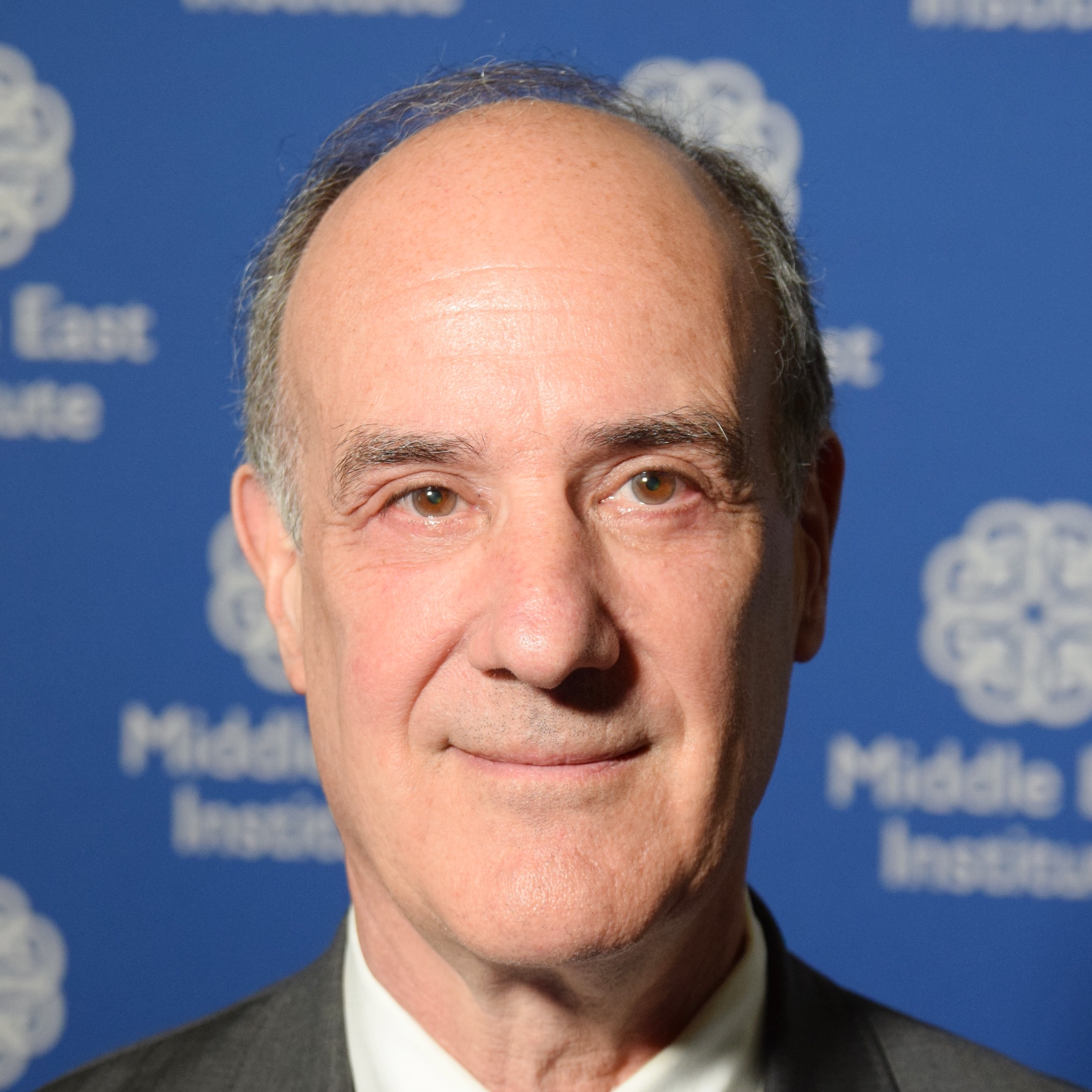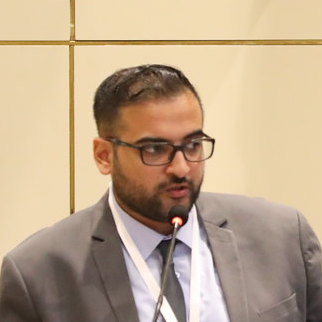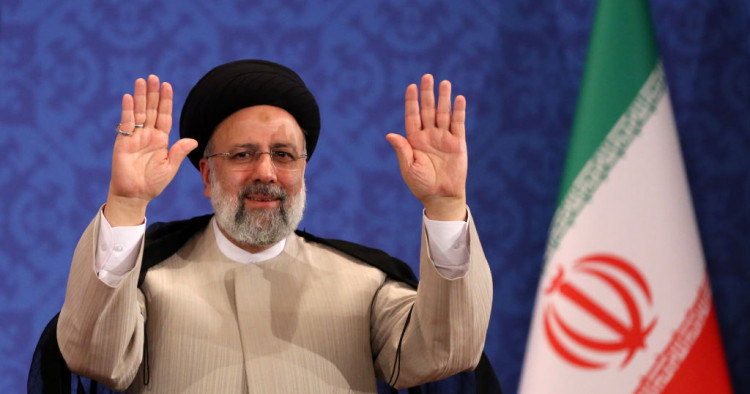Contents:
- No surprises in Iran’s election, but what comes next?
- The US makes promises to Afghans difficult to keep
- Egypt ramps up Libya diplomacy
- To succeed, Berlin II Libya Ministerial must build support not only for elections, but for the departure of foreign military forces
- Counting the cost as the US turns the page on the Iraq War
- The UK looks to the Gulf for trade and investment opportunities
No surprises in Iran’s election, but what comes next?
Alex Vatanka
Director of Iran Program and Senior Fellow, Frontier Europe Initiative

The so-called “election” of Ebrahim Raisi was a foregone conclusion. Supreme Leader Ayatollah Ali Khamenei took every step possible to make sure of it. In the process, Khamenei has deepened two already existing crises facing the Islamic Republic while potentially giving the regime a chance to chart a new course going forward.
First, this election has removed any doubts about the unpopularity of the Islamist system. Khamenei’s oversight of the mass disqualification of aspiring candidates for the presidency was shameless and a wake-up call. Even supporters of the political order were aghast. The official voter turnout, at about 48%, testifies to it, although the real figure could easily have been less. Meanwhile, 4.2 million votes out of the 28.9 million cast were blank. This too was a protest by those who did not want to vote but for various reasons needed proof in their identity documents that they had. Khamenei had declared voting blank as haram, or religiously forbidden. His fatwa was clearly largely ignored by a majority of Iranians. In the capital Tehran, turnout was just 26%. This follows official turnout of 42.6% in the 2020 parliamentary elections, the lowest recorded since 1979. What is amounting to a trend toward boycotting sham elections where a handful of pre-approved men can run at the supreme leader’s pleasure speaks to the depth of the legitimacy crisis Khamenei has created. And yet, Khamenei remains loath to abolish elections altogether, even though anyone who cares to observe can see the emperor has no clothes on.
Second, Khamenei did not just disqualify reform and moderate candidates in this election, but also many other personalities with a bona fide track record in the regime. Figures like Ali Larijani, Mahmoud Ahmadinejad, and many others who were disqualified this election cycle now have a reason to hold a grudge. The tent of the Islamic Republic is indeed becoming smaller. The silver lining could be that Khamenei, having orchestrated an election outcome he wished to see, may now feel confident enough to actually usher the system in a new direction. Khamenei has the choice to continue the current trajectory of domestic and foreign policy or use Raisi’s presidency as a reason to change course. Raisi will certainly be no Trojan horse in the Presidential Palace. He is Khamenei’s hand-picked foot soldier.
Follow on Twitter: @AlexVatanka
The US makes promises to Afghans difficult to keep
Marvin G. Weinbaum
Director, Afghanistan and Pakistan Studies

As the date of the final withdrawal of U.S. forces approaches, officials have hastened to assure the Kabul government and the Afghan people that their allies of two decades are not deserting them. Ross L. Wilson, the acting U.S ambassador to Afghanistan, has promised “robust and serious” assistance to Kabul in the post-withdrawal scenario. The U.S. and NATO nations have committed to continued backing for a 173,000-strong Afghan army and police force and have promised to retain economic and diplomatic support for the Afghan regime along with humanitarian aid. When it comes to the all-important air support, the U.S. has promised to replace bases in Afghanistan with “over-the-horizon” locations from which to launch operations and train Afghan military personnel. As replacements for departing U.S. and other foreign contractors so critical to maintaining Afghanistan’s fledgling air force, the Pentagon is also seeking new contracting arrangements.
But the ability to deliver on these and other promises already seems in doubt. Many details remain to be worked out, reflecting the insufficient thought given to the full implications of a U.S. military withdrawal. American officials are unclear, for example, on the purposes of over-the-horizon air support. They can agree that it is limited by the failure to secure approval of countries with close proximity to Afghanistan for military basing or intelligence activities. But there is uncertainty over whether the expensive operations from distant U.S. facilities in the Gulf limit drones and airplanes to only oversight and monitoring. Should offshore operations also regularly permit counterterrorist strikes against al-Qaeda and Islamic State-Khorasan Province? Officials disagree more sharply over whether U.S. airpower should be employed if Taliban forces appear poised to overrun major Afghan cities.
Also in question is the U.S ability to retain economic and humanitarian assistance under conditions of deteriorating security. For how long will the U.S. Congress and foreign donors be willing to fund programs whose implementation the insurgency makes problematic? How can the U.S. even expect to retain a presence if Kabul airport, the entry and potential exit point for aid workers, contractors, and diplomats, cannot be secured? While the Turkish government seems ready to have its troops assume the defense of this critical facility, for how long are they likely to stay if, as seems almost certain, the Taliban launch rocket attacks against the airport?
A large portion of the Afghan public is preparing for the worst, convinced that promised U.S. military operations and assistance programs will do little to help prepare them for an expected Taliban onslaught in coming months. As a result, there is a growing realization among Afghans that they must rely more than ever on their own resources, and an increased recognition of the importance at this critical time of finding national unity. Unfortunately, these points have been slow to reach the country’s political elites. The visit of President Ashraf Ghani and Chairman Abdullah Abdullah to Washington later this week may reinforce their importance.
This article was co-authored by Zuha Noor and Makhdum Karam Shah, research assistants to Marvin G. Weinbaum.
Follow on Twitter: @mgweinbaum
Egypt ramps up Libya diplomacy
Mirette F. Mabrouk
Senior Fellow, Director of the Egypt program

While Egypt has been shifting into overdrive with its shuttle diplomacy with Nile Basin countries, it has been just as active in its immediate neighborhood.
Egyptian Foreign Minister Sameh Shoukry met with his Libyan opposite, Najla al-Manqoush, in Cairo at the Tahrir Palace on June 19. Of equal, if not greater, importance was the fact that Egyptian Intelligence head Abbas Kamel, Egypt’s top person on the Libya file, had flown to Tripoli less than two days earlier. Kamel met with senior Libyan leadership, among them Prime Minister Abdul Hamid Mohammed Dbeibah and the head of the Libyan transitional authority, Muhammad al-Manfi.
Libya is of paramount importance to Egypt in terms of security and economic cooperation and its stability is viewed as essential to Egypt’s own. This would explain why Egypt, whose foreign policy is generally nothing if not pragmatic, has backed the new transitional authority, after years of supporting Gen. Khalifa Hifter, head of the Libyan National Army (LNA). Contrary to popular belief, Egypt was never particularly keen on Hifter, viewing him as a volatile and potentially unreliable partner, but it still viewed him as an important bulwark against Islamist militias on its borders. Considering that the border between the two countries is long and extremely porous, facilitating the movement of both people and arms, and that several terrorists captured in North Sinai were found to have trained in Libya, Egypt’s concerns over Libya were understandable. However, given the importance of Libyan stability to Egypt, Hifter increasingly became a liability and by the time his forces attacked Tripoli, something Egypt had been keen to avoid at all costs, the marriage was well and truly on the rocks. Egypt’s support for the new transitional authority was not so much a pivot as a sigh of relief.
Which isn’t to say that Hifter can be ignored, particularly not as he still leads the LNA and clearly has an eye on the upcoming elections this December. Relations between him and the transitional authority are frosty; one recent confrontation involved funds allocated to the LNA. The transitional authority does not view the LNA as Libya’s army but is pragmatic enough to understand that it will be an indispensable part of the military going forward. Egypt is keen to avoid any confrontations between the transitional authority and Hifter, which would explain why Kamel, on wrapping his meeting with Dbeibah and al-Manfi, headed to Benghazi to meet with Hifter.
Hifter aside, according to Mada Masr, one source that spoke to the paper noted that chief among Egypt’s concerns is the presence of international mercenaries in Libya, specifically those supplied by Turkey.
On the diplomatic side, al-Manqoush and Shoukry would have had a long list to get through, starting with the upcoming meeting on Libya in Berlin, on June 23. Also on the list is the reopening of Egypt’s embassy in Tripoli, closed since 2014 due to the political instability. While Egypt is being cautious due to the current security situation, it did send a charge d’affaires, Mohamed Selim, to the embassy last month. The source speaking to Mada Masr noted that they expected an ambassador might be named over the summer.
A recent meeting between the Egyptian and Libyan labor ministers, Mohamed Saafan and el-Abed el-Reda respectively, might have attracted less attention, but it is no less important. Egypt is extremely keen on being involved in the reconstruction in Libya; apart from the lucrative contracts there had been almost 3 million Egyptian laborers in Libya, all contributing to both remittances and the reduction of unemployment figures in Egypt.
Follow on Twitter: @mmabrouk
To succeed, Berlin II Libya Ministerial must build support not only for elections, but for the departure of foreign military forces
Jonathan M. Winer
Non-Resident Scholar

On June 23, foreign ministers will gather in Berlin with the goal of reaffirming the vows they made there on Jan. 19, 2020 to pull military forces out of Libya and support the U.N.-brokered Libyan political process that has scheduled elections for Dec. 24.
Since then, the U.N. process has secured a cease-fire in the country’s civil conflict, which has held since October 2020, and the appointment by the Libyan Political Dialogue Forum convened by the U.N. to create a second U.N.-sponsored transitional body, the Government of National Unity (GNU) under interim Prime Minister Abdul Hamid Mohammed Dbeibeh, to govern only until those elections take place and a government chosen by the Libyan people is formed.
Libyan politics always has a rumor mill. Currently in circulation are assertions by former senior Libyan officials, among others, that the interim office-holders, backed by the excellent understanding of Dbeibeh and his colleagues of how to take advantage of patronage opportunities and networks, are exploring whether the elections could be delayed. Meanwhile, agents purportedly representing Libyan strongman Khalifa Hifter, former Libyan Ambassador the UAE Aref Nayed, and Moammar Gadhafi’s son, Saif al-Islam, are sending up trial balloons and shopping for foreign political consultants and public relations firms to help them in the campaign leading up to Dec. 24. Amid all this, we can expect that Berlin II will ratify the course of action set in Berlin I, including the requirement that the Dbeibeh government take appropriate action to ensure the elections are actually held, and held on time.
But what about the commitments to have foreign military forces and militias leave the country? Libya’s new foreign minister, Najla Mangoush, has continued to ask these forces to leave Libya as their national sponsors have promised. U.N. experts assess that some 20,000 foreign combatants and mercenaries remain in Libya, including Turkish-sponsored Syrian mercenaries and Russia’s Wagner Group mercenaries. If Berlin II can help to prompt Turkey and Russia to depart prior to the elections, as required under the U.N. roadmap, it will be a successful conference indeed.
Counting the cost as the US turns the page on the Iraq War
Yesar Al-Maleki
Non-resident Scholar

On June 17, the U.S. Congress passed Democratic Rep. Barbara Lee’s (CA-13) proposed resolution to repeal the Authorization for Use of Military Force Against Iraq Resolution of 2002 with an overwhelming — even bipartisan — majority of 268 votes to 161. Backed by President Joe Biden, Rep. Lee’s resolution was co-sponsored by 134 of her colleagues, with 49 Republicans joining the Democrats on the vote. U.S. legislators are carrying out a symbolic concluding act in a two-decade-long conflict that saw both countries lose much and gain little.
The need to end this chapter of U.S. history is understandable. The Iraq War came with a bill north of $2 trillion and counting, which translates into an average of around $8,000 per taxpayer. 4,586 American soldiers lost their lives, along with at least 3,481 U.S. contractors, but this is dwarfed by the incalculable human cost on the Iraqi side. The figure available for civilians who died “from direct war-related violence” is 182,000, and that is by all accounts an under-estimation.
The U.S. went into Iraq with three strategic goals: stripping a malign regime of weapons of mass destruction (WMDs), turning Iraq into an example of democracy and economic prosperity for the rest of the region, and ending state-sanctioned violence under the rule of dictator Saddam Hussein. To varying extents, Washington has failed in all three.
The easiest to address first is the failure to find any WMDs. It was clear for all those who opposed the war — including other U.N. Security Council members like France — that a decade of sanctions immediately after a crippling military defeat in Kuwait had rendered Baghdad incapable of producing such weapons. The failure to provide any evidence to support this cornerstone for military intervention created the initial expectations that what would follow would be a fiasco.
As was subsequently borne out by events, the George W. Bush administration lacked a comprehensive plan for its presence in Iraq. Beyond slogans like the infamous “Mission Accomplished” banner on the USS Abraham Lincoln, there was not a well-thought-out strategy for nation building. But that was not America’s fault alone. Washington also fell victim to the machinations of some members in the Iraqi diaspora opposition that marketed the intervention as another quick “liberation of Kuwait.”
In the end, these opposition figures may be the biggest winners from the Iraq War. To date Iraq’s democracy has failed to produce politics that escape its Muhasasa ethno-sectarian system. Instead, it has produced a new class of elitists and opportunists eager to maintain an oligarchic political framework built atop a broken and centrally controlled rentier petro-economy. Since 2003, Iraq has earned almost $1 trillion in oil revenues. Yet, the government has failed to provide public services like electricity, a recurring demand by Iraqis, especially when heat soars in the summer. Iraqi President Barham Salih recently proposed a bill to recover $150 billion of “stolen money [that] has been smuggled out of Iraq.” That is a mere 15% of the wealth that was supposed to rebuild the nation.
After trillions of American and Iraqi dollars were wasted, the so-called Marshall Plan promised to Iraqis on the eve of the fall of Baghdad never happened. Nor did the U.S. get to “keep Iraq’s oil” despite the willingness of Iraqis when suffering the tyranny of Saddam to “share half of the barrel” with the Americans if they were to rid them of him.
But it was the endless cycles of violence and bloodshed that Iraq endured post-2003 that turned it into a cautionary tale used by autocratic regimes throughout the region to quiet aspirations for democracy and human rights. Adding insult to injury — at least for those who truly believed in the American project in Iraq — the U.S. today has diminished influence in the affairs of the country and seems to only consider it from the limited perspectives of security and its geopolitical contestation with Iran.
Follow on Twitter: @yesar
The UK looks to the Gulf for trade and investment opportunities
Karen E. Young
Senior Fellow and Director of Program on Economics and Energy

The U.K. is eager to promote its trade and investment opportunities with the Gulf states, but a quick trade deal between the GCC and the U.K. is unlikely to emerge in short order. The U.K. is more likely to secure bilateral trade agreements with the UAE and Saudi Arabia, respectively. The current British government has a mandate in a post-Brexit and post-COVID environment to promote a growth agenda. A privately sponsored virtual trade summit between the GCC and the U.K. is planned for June 29, in which a number of Saudi tourism and development projects will be seeking investor interest, and U.K. companies will be eager to build upon committed Gulf investments, like Mubadala's decision to invest 800 million GBP over five years into life sciences businesses under the U.K.-UAE Sovereign Investment Partnership.
The larger challenge is that the GCC as a regional organization is not fully aligned among its member states in their own trade and investment policies. Divergence on tax policy is increasing, as just three of the six member states have implemented a value-added tax and the taxation level is different among them. The recovery between the GCC states after the 2017 Qatar dispute is proceeding gingerly following the January al-Ula agreement, but there remain open questions as to the organization's dispute resolution ability as well as the extent of member states' cooperation. Real estate investments between the Gulf and the U.K. have been a traditional area of mutual interest, along with tourism and defense industries. Newer areas of potential trade and investment in health care, pharmaceuticals, and biomedical research, along with a burgeoning global interest in clean energy investment, do make the potential for increased Gulf-U.K. commercial ties promising. But some Gulf states will be better positioned to both take advantage of incoming capital and better able to offer outgoing investment.
Follow on Twitter: @ProfessorKaren
The Middle East Institute (MEI) is an independent, non-partisan, non-for-profit, educational organization. It does not engage in advocacy and its scholars’ opinions are their own. MEI welcomes financial donations, but retains sole editorial control over its work and its publications reflect only the authors’ views. For a listing of MEI donors, please click here.













